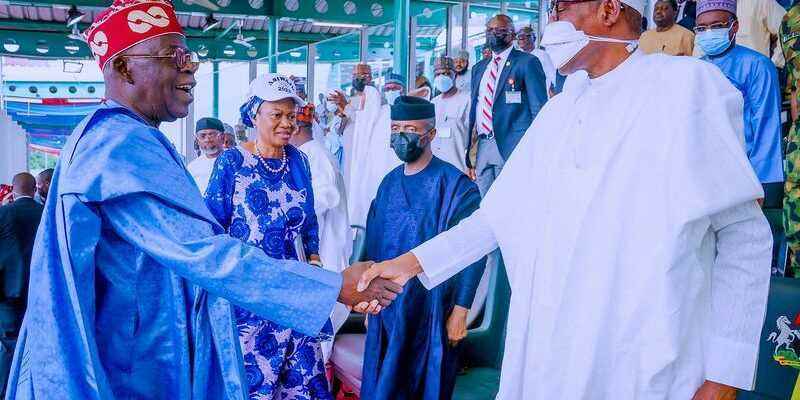The ruling All Progressives Congress (APC) party this week chose Bola Tinubu as its candidate to replace President Muhammadu Buhari in next year’s polls. He will face Atiku Abubakar, a former vice-president and veteran politician, who is the standard bearer of the main opposition party, the People’s Democratic Party (PDP).
Mr. Abubakar had already presented himself with a commitment to privatize the public oil company and create a fund to stimulate private investment in infrastructure. For his part, Tinubu has pledged to boost manufacturing to reduce Nigeria’s dependence on imports, build a deep-water port in the south and increase gas and oil exploration in the continent’s top crude producer.
“Regardless of the outcome of the election, the political trajectory will fundamentally change,” the financial derivatives firm said in a statement to investors. “The protectionist policies of the past decade will likely be scrapped.”
Under Buhari, the central bank has drawn up a priority list of imports to curb dollar outflows and imposed exchange controls, which Tinubu and Abubakar want to remove.
They also want to clean up the oil sector by privatizing the state oil company or removing the expensive gasoline subsidy.
Crude theft and pipeline vandalism have caused the government to cut its budgeted oil production to 1.4 million barrels per day from an initial 1.8 million bpd, meaning Nigeria is not benefiting from soaring oil prices. oil prices, unlike other oil producers in the aftermath of the war in Ukraine.
Nigeria lost 434 billion naira ($1 billion) to oil theft in the first quarter of this year alone, according to the oil regulator.
SAFETY ISSUES
To their favor at the polls, Tinubu, 70, and Abubakar, 75, are both established figures who have built extensive tribal, religious and political networks that have chosen the winner of elections over the past two decades.
But both candidates will face the image of griatric men leading a young nation.
Young, tech-savvy Nigerians accounted for half of the voters in the 2019 elections and their numbers are expected to grow. They want jobs and business opportunities and complain about being excluded from decision-making in Nigerian politics.
Whoever wins will also face a series of security challenges, including a spreading Islamist insurgency that has left many dead in its wake, as highlighted by the massacre of a Catholic church last Sunday, in which 40 people were killed.
Banditry and kidnappings, long-running unrest in the Niger Delta, clashes between pastoralists and farmers, and the separatist movement from Biafra in the southeast are other risks.
Tinubu and Abubakar say they will end the cycle of violence, but it won’t be the first time Nigerians have heard such promises, and many are appalled at how insecurity and poverty levels have since risen. that they voted for Buhari, who pledged to ease insecurity and revive the economy.
“They are establishment candidates, the system made them, so I doubt they are reformists or revolutionaries,” said Abiodun Adeneyi, professor of mass communication at Baze University in Lagos. “I don’t see how they can do anything different to overcome the security situation.”
